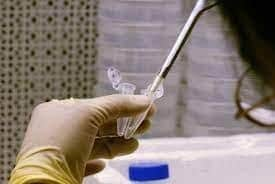Scottish child receives emergency liver transplant in hepatitis outbreak
and live on Freeview channel 276
The youngster, believed to be an infant, is one of three who were initially treated in the Royal Hospital for Children in Glasgow after falling ill in March.
There are now more than 70 cases across the UK with six children so far undergoing transplant surgery.
Advertisement
Hide AdAdvertisement
Hide AdThe outbreak was first known of in Scottish medical circles in January.


On April 1, Public Health Scotland (PHS) issued an alert to NHS Health Boards about the outbreak with a public warning issued five days later after informing the World Health Organisation (WHO) of ten severe acute hepatitis in youngsters in Glasgow, Lanarkshire, Tayside and Fife.
A further three cases were subsequently confirmed in NHS Lothian and Dumfries and Galloway. Details of the age, sex and home town of the child who received the transplant have not been disclosed.
It is understood that the patient, believed to be a toddler, fell seriously ill while being treated in Glasgow and required urgent surgery available south of the border. Hepatitis can lead to multiple organ failure and death.
Advertisement
Hide AdAdvertisement
Hide AdThe UK Health Security Agency has set up a four nations Incident Management Team and is coordinating the ongoing investigation after initial tests failed to determine how the youngsters contracted the illness.


PHS has emphasised that there is no connection between the Covid-19 vaccination and the outbreak in Scotland.
The WHO warned that, given the increase in cases reported over the past month and a ramping up of search efforts, more cases were likely to be reported in the coming days.
As of April 11 no death has been reported among these cases and one epidemiologically linked case has been detected, WHO said.
Advertisement
Hide AdAdvertisement
Hide AdDr Jim McMenamin, head of health protection (infection services) at PHS, said: “Along with colleagues in other parts of the UK, several lines of investigation are ongoing. In a number of cases, adenovirus and SARS-CoV2 have been detected, so these links are currently being investigated.
“Parents should contact their GP or other healthcare professional if they notice signs of jaundice in their child. This can be a yellow tinge in the whites of their eyes or on their skin.
“Other symptoms include dark urine, pale grey coloured poo, itchy skin, muscle and joint pains, tiredness, feeling sick, a high temperature, loss of appetite and stomach pain.
“I would also encourage parents and others taking care of young children to be vigilant about hand and general hygiene. We will issue further updates as the situation develops and we have more information.”
Advertisement
Hide AdAdvertisement
Hide AdDr Meera Chand, director of clinical and emerging infections at the UK Health Security Agency, said its officials were working across the four nations to “investigate a wide range of possible factors which may be causing children to be admitted to hospital with liver inflammation known as hepatitis.
“One of the possible causes that we are investigating is that this is linked to adenovirus infection.
“However, we are thoroughly investigating other potential causes,” she said.
Other possible explanations are also being investigated, including whether or not Covid-19 could have played a role in the spate of cases.
Advertisement
Hide AdAdvertisement
Hide AdBut officials stressed that there is “no link” to Covid-19 jabs as none of the children affected have received a vaccine.
Lab tests have excluded hepatitis type A, B, C, and E viruses in these cases, WHO said, and further tests for additional infections, chemicals and toxins are under way.
Following identification in the UK less than five cases have been reported in Ireland with further investigations ongoing.
And three cases of acute acute hepatitis of unknown aetiology have been reported in children in Spain.
A message from the Editor:
Thank you for reading this article. We're more reliant on your support than ever as the shift in consumer habits brought about by coronavirus impacts our advertisers.
If you haven't already, please consider supporting our trusted, fact-checked journalism by taking out a digital subscription at https://www.scotsman.com/subscriptions
Comment Guidelines
National World encourages reader discussion on our stories. User feedback, insights and back-and-forth exchanges add a rich layer of context to reporting. Please review our Community Guidelines before commenting.